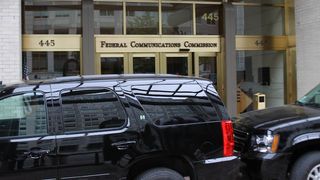Spiwak: Title II Debate About Power

Phoenix Center president Lawrence Spiwak says there should be more focus on how the FCC implemented the controversial Title II reclassification of ISPs, and such a deep dive would show that to be a gross distortion of Title II the courts surprisingly upheld.
That came in a new policy bulletin, USTelecom and Its Aftermath, that asserts net neutrality is "all about" rate regulation, and so the FCC's attempt to "get around that legal inconvenience" by not applying more of the Title II regs was a "legal perversion" on which the court gave its stamp of approval, in effect expanding the FCC's authority "well beyond" statute.
Former FCC chairman Tom Wheeler used the fact that the FCC was forbearing from applying most of the Title II regs as a selling point with ISPs opposed to reclassification, but Spiwak hardly sees it that way.
"While the Commission certainly has great latitude to interpret the Communications Act, the Agency must nonetheless operate 'within the bounds of reasonable interpretation' and it is not at liberty to pick and choose select provisions of the statute to govern for the sake of expediency."
“Properly viewed, the current iteration of the net neutrality debate is not really about an ‘Open Internet,’ free speech, or even who has the biggest Reese’s Peanut Butter mug," he writes, "it’s about power. An administrative agency should not be permitted on its own initiative to expand its power beyond its statutory mandate at the expense of private actors’ Fifth Amendment due process protections."
The candy reference is to Pai's large Reese's coffee mug, which he was using at an FCC public meeting and was subsequently mocked by Title II fan John Oliver on his HBO show, Last Week Tonight.
Spiwak also argues the FCC used the same "legal perversion" to try and regulate the price of business data services (BDS) before that proposal was pulled by Wheeler in the wake of the Republican election victory and a signal from Congress to stand down from any potentially controversial decisions in the waning days of his tenure.
Broadcasting & Cable Newsletter
The smarter way to stay on top of broadcasting and cable industry. Sign up below
And while Spiwak has plenty of bones to pick with the FCC order, the federal appeals court that upheld that order does not escape the lash.
"With the D.C. Circuit’s decision in USTelecom, the FCC apparently now has carte blanche to tailor its enabling statute to fit a results-driven outcome and trample on key due process concerns so long as it can sprinkle some pixie dust about promoting broadband deployment," he said. "And if that unbridled expansion of regulatory power doesn’t scare you, then it damn well should."
The FCC under new chairman Ajit Pai has proposed to roll back Title II and reconsider the Open Internet order. It is currently seeking comment on just how to do that.
Contributing editor John Eggerton has been an editor and/or writer on media regulation, legislation and policy for over four decades, including covering the FCC, FTC, Congress, the major media trade associations, and the federal courts. In addition to Multichannel News and Broadcasting + Cable, his work has appeared in Radio World, TV Technology, TV Fax, This Week in Consumer Electronics, Variety and the Encyclopedia Britannica.

